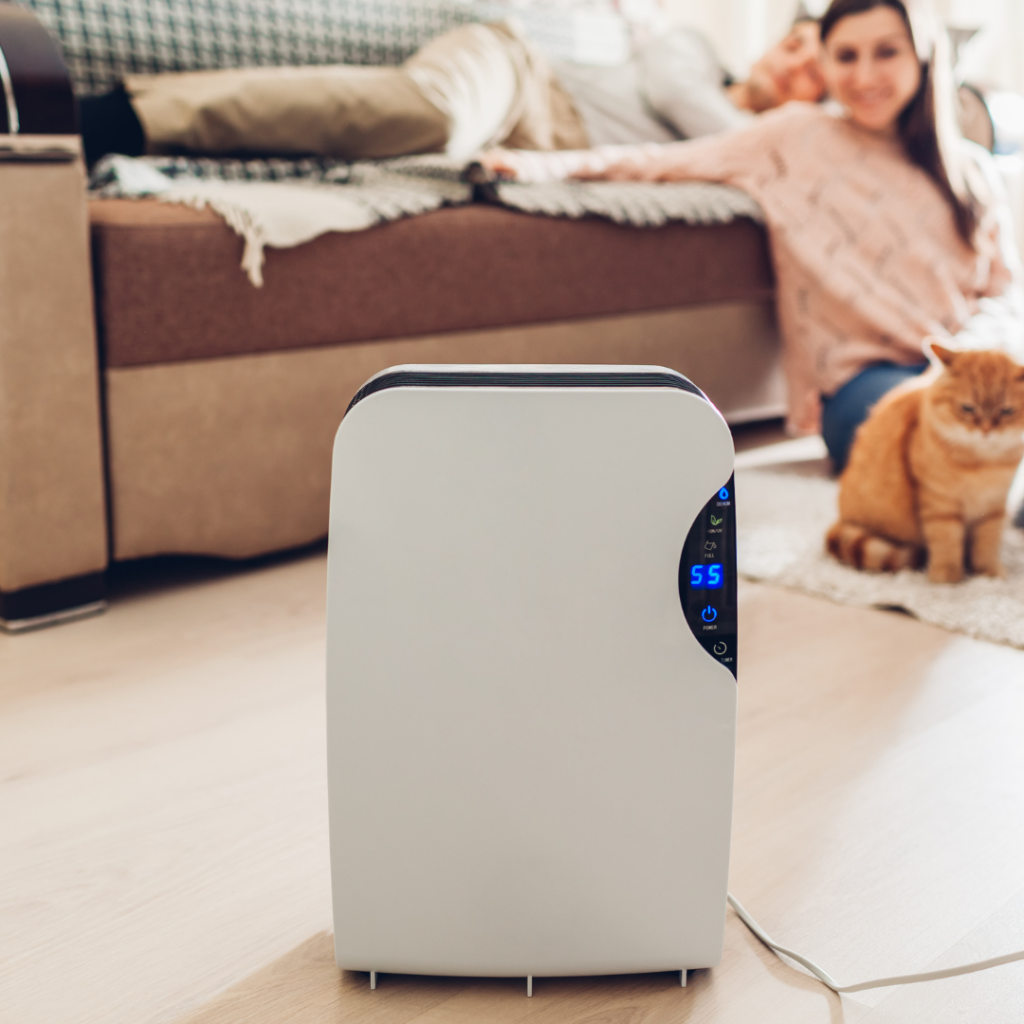Maintaining optimal indoor air quality is essential for a healthy and comfortable home environment. As homeowners, it’s important to understand the different indoor air quality solutions available to help you achieve this goal. Two key systems that can significantly impact your indoor environment are whole-house humidifiers and dehumidifiers. But how do you know which is right for you? In this article, we’ll explore the benefits and drawbacks of each system, providing you with the information you need to make an informed decision.
Understanding Indoor Air Quality and Its Importance
Indoor air quality (IAQ) refers to the condition of the air inside your home and how it affects your health and comfort. Poor indoor air quality can lead to a range of health concerns, including respiratory problems, allergies, and more severe conditions like respiratory diseases. Several factors, including the presence of indoor air pollutants like dust, mold spores, and chemicals from gas stoves influence the quality of indoor air. Achieving good air quality involves balancing humidity levels, filtering airborne particles, and ensuring proper ventilation.
How Whole-House Humidifiers Improve Indoor Air Quality
Whole-house humidifiers play a crucial role in maintaining a comfortable environment by adding moisture to the air. Low humidity levels can lead to stale air, dry skin, and an increased risk of respiratory problems. By maintaining an optimal level of humidity, whole-house humidifiers help create healthier air by reducing the presence of airborne particles that can irritate your lungs and nose. This is particularly important in the winter when heating systems often dry out the indoor air.
The Science Behind Whole-House Humidifiers
Whole-house humidifiers work by integrating with your HVAC system to distribute moisture evenly throughout your home. This system can help improve indoor air quality by reducing the concentration of pollutants such as dust and particulate matter. By maintaining proper humidity levels, these humidifiers can help mitigate health concerns related to dry air, such as respiratory issues and skin irritations. Additionally, the added moisture helps create a more comfortable environment by preventing the drying out of furniture and other wooden elements in your home.
Benefits of Whole-House Humidifiers for Your Home
Whole-house humidifiers offer several benefits beyond improving indoor air quality. These systems can help reduce the prevalence of airborne allergens, resulting in improved indoor air quality. Additionally, whole-house humidifiers can help prevent the spread of mold spores, which thrive in dry conditions, contributing to better overall well-being.
Dehumidifiers: An Effective Solution for High Humidity
Dehumidifiers are essential for homes in humid climates where excessive moisture can lead to poor indoor air quality. High humidity levels can cause a range of problems, from mold growth to the proliferation of bacteria and other contaminants. Dehumidifiers help by removing excess moisture from the air, creating a healthier and more comfortable indoor environment. This is especially important in rooms like basements, where damp conditions can lead to indoor air pollution.
How Dehumidifiers Work to Improve Indoor Air Quality
Dehumidifiers function by drawing in humid air, cooling it to condense the moisture, and then releasing the drier air back into the room. This process helps maintain a balanced indoor environment by keeping humidity levels in check. By reducing the moisture content in the air, dehumidifiers help prevent the growth of mold spores and other indoor pollutants, leading to improved indoor air quality. This is particularly beneficial in areas of the home prone to dampness, such as basements and bathrooms.
Advantages of Using Dehumidifiers in Humid Environments
Dehumidifiers offer numerous benefits, especially in regions with high humidity. By reducing indoor air pollutants like mold spores, dust mites, and bacteria, these systems can help create a healthier indoor environment. This is crucial for individuals with allergies or asthma, as these pollutants can exacerbate respiratory problems. Additionally, by controlling humidity levels, dehumidifiers help prevent structural damage caused by excess moisture, such as warped wood and peeling paint.
Choosing Between a Whole-House Humidifier and a Dehumidifier
Deciding between a whole-house humidifier and a dehumidifier depends on several factors, including your local climate, the size of your home, and your specific air quality needs. In dry climates, a humidifier is often the most effective way to improve indoor air quality by adding necessary moisture to the air. In contrast, homes in humid areas may benefit more from a dehumidifier, which can help reduce moisture levels and prevent the growth of indoor pollutants.
The Impact on Your HVAC System and Energy Efficiency
Both whole-house humidifiers and dehumidifiers can have a significant impact on the efficiency of your HVAC system. A humidifier can reduce the need for excessive heating by helping to maintain a comfortable indoor temperature. Conversely, a dehumidifier can enhance the effectiveness of your air conditioning system by reducing the load caused by high humidity levels. Understanding how each system interacts with your HVAC can help you make an informed decision about which is right for your home.
Professional Guidance for Optimized Air Quality Solutions
When choosing between a humidifier and a dehumidifier, consulting with HVAC professionals is crucial. Experts can assess your home’s specific conditions and recommend the most effective solution for improving indoor air quality. Whether you need to add moisture to the air or remove excess humidity, a professional can help you find the right system to create a healthier and more comfortable indoor environment.
The choice between a whole-house humidifier and a dehumidifier is a critical decision in your quest for good indoor air quality. By understanding the role of humidity in your home and evaluating your specific needs, you can choose the system that will best improve indoor air quality.
Don’t let poor indoor air quality compromise your health and comfort. Contact Comfort Heating & Cooling today to explore the best indoor air quality solutions for your home. Let us help you breathe easier and enjoy a healthier living environment. Share your thoughts and questions in the comments below—we’re here to help!
